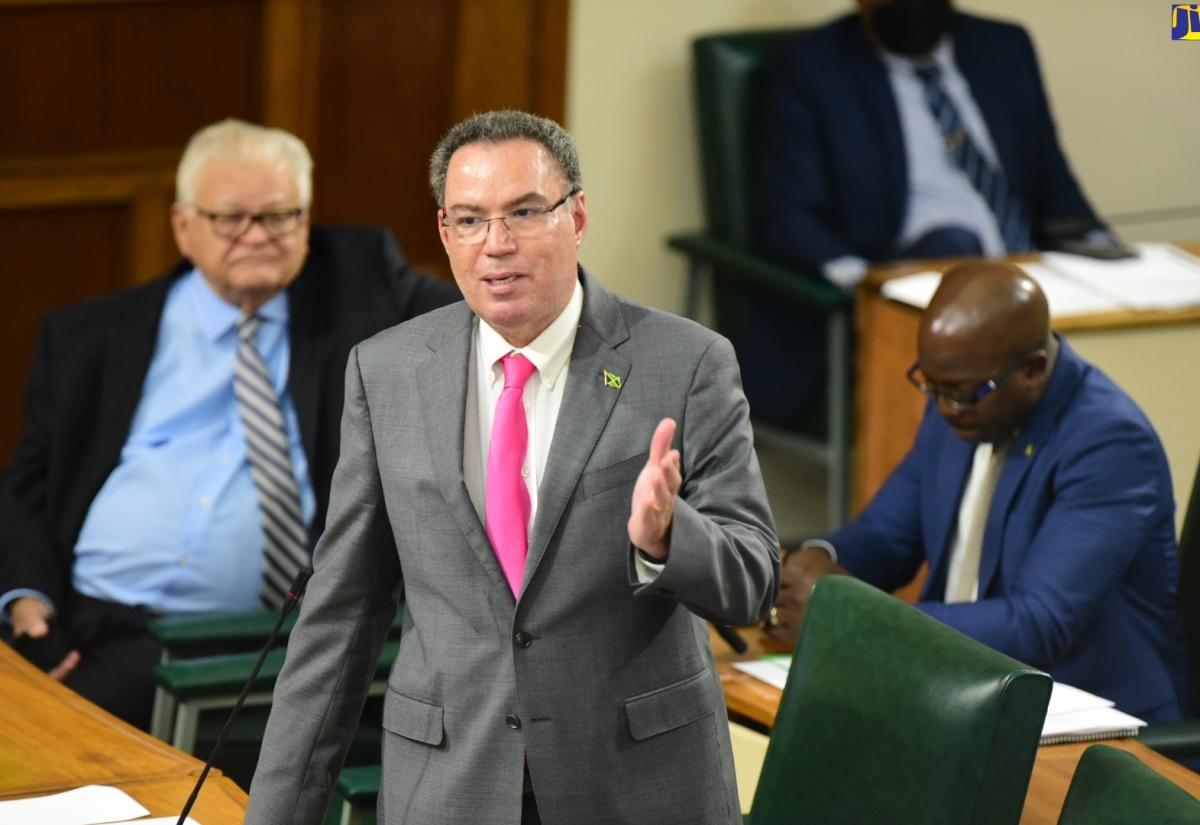Regulations Coming to Sell Excess Energy to JPS
By: , July 21, 2022The Full Story
The House of Representatives on Tuesday (July 19) commenced debate on the Electricity (Net Billing) Regulations, 2022, which are intended to provide opportunities for fuel diversification, development, and deployment of renewable energy sources.
The aim is to have a modern, efficient, and environmentally sustainable energy sector that is affordable and accessible.
In his remarks, Minister of Science Energy and Technology, Hon. Daryl Vaz said the Electricity Act, 2015, establishes the legal framework for net billing, electric wheeling, and other arrangements.
He stated that these regulations focus on the net billing programmes and provide the regulatory framework under which, among other things, the minister with responsibility for energy has the power to issue licences.
“The net billing is a mechanism for persons who generate their own electricity to sell their excess power to the single buyer, which is Jamaica Public Service Company Limited (JPS) under a standard offer contract, approved by the Office of Utilities Regulation. The minister responsible for energy has responsibility for the functions of the net billing services,” Mr. Vaz stated.
In terms of the provisions, regulation three establishes the criteria under which persons (residential and commercial) are eligible to apply for and to be issued with net billing licences.
“Net billing shall be open to all applicable and qualified customers of the single buyer [JPS], limited only in circumstances where the generating capacity for licensed renewable energy sources to be connected to the grid is reached. This limit on the number of licenses to be issued at any given time is prescribed by the Integrated Resource Plan,” Mr. Vaz said.
He further noted that a net billing licence may be issued only where the single buyer is required to purchase such energy at the net billing energy rate, published by the Office of Utilities Regulation (OUR) subject to a contract to be executed by a licensed self-generator and the single buyer.
Regulation five, specifies the application process to obtain a licence for a net billing arrangement. A person may be licensed for net billing by submitting to the minister a completed application along with the requisite documents specified in Part A of the Schedule and with proof of payment, in accordance with Part B of the Schedule.
Mr. Vaz explained that upon receipt of the application, the minister shall review the application and advise the applicant, where the application is incomplete, to submit additional information and documents.
He further stated that the applicant would then have 60 days in which to submit any additional information and documents requested, if not the application process may be terminated.
Regulation six provides that where a licence is granted, the single buyer (JPS) has 30 days from the date of receiving the licence, to issue a standard offer contract (“net billing contract”) approved by the OUR.
Regulation eight addresses the duration of the licence.
Mr. Vaz explained that the licence issued by the minister shall be valid for 10 years and the duration of the net billing contract must not exceed the period stipulated in the net billing licence.
In addition, regulation 10 prohibits the single buyer from requesting from the self-generator, security deposits and insurance coverage for a net billing arrangement.
“If the single buyer commits the aforementioned offence, the single buyer is liable to a fine not exceeding $2 million,” Mr. Vaz stated.
Meanwhile, the minister noted that as Jamaica considers the problems of global warming, health effects and sustainability of fossil fuel dependency, the passing of these regulations is critical to the Government’s attempt “to optimise our use of sustainable and renewable energy sources; and to establish clean, affordable and reliable sources of energy”.


